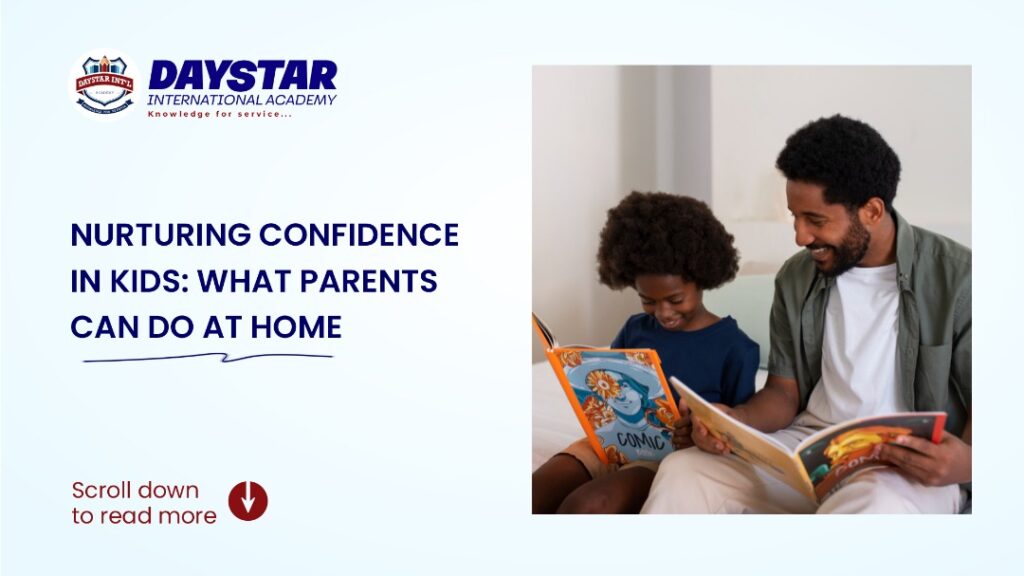
🌱 Confidence Is Grown,
Not Just Taught
At Daystar, one of the first qualities we aim to cultivate
in every learner is confidence not arrogance, but the quiet strength
that says:
“I can try. I can grow. I can speak. I belong.”
While our teachers nurture this in the classroom daily,
confidence-building starts at home—and it needs intentional, gentle
support from parents.
Here’s how you can help your child blossom into a
self-assured learner.
🧠 Why Confidence in Early
Childhood Matters
Confidence is directly linked to:
- Better
academic performance
- Stronger
communication skills
- Greater
resilience in challenges
- Lower
anxiety and peer pressure
Children who believe in themselves are more likely to
participate in class, try new things, solve problems, and bounce back from
failure.
So how can we plant this seed in everyday moments?
🌟 7 Simple Ways to Build
Your Child’s Confidence at Home
1. Celebrate Effort, Not Just Results
Praise your child for trying, not only succeeding.
Instead of “You’re so smart,” try:
“I love how hard you worked on that puzzle.”
This reinforces a growth mindset and teaches them that it’s
okay to struggle as long as they don’t give up.
2. Give Small Responsibilities
Children feel confident when they know they can contribute.
Let them:
- Help
set the table
- Pack
their school supplies
- Water
a plant every morning
These small wins build a sense of capability that grows into
lifelong confidence.
3. Let Them Make Simple Choices
Allowing your child to choose between two outfits or what
book to read at bedtime helps develop independence and decision-making skills.
Just be sure to:
- Offer limited
choices to avoid overwhelm
- Praise
the decision-making process, not just the outcome
4. Be a Safe Space for Mistakes
When your child makes a mistake, resist the urge to jump in
with criticism.
Instead, try:
“Everyone makes mistakes. What do you think we can do
differently next time?”
Mistakes are powerful learning moments and how you respond
matters more than what happened.
5. Listen More Than You Advise
Sometimes, children don’t need solutions. They just want to
feel heard.
Give full attention when your child speaks. Avoid cutting
them off or correcting mid-sentence. This shows that their voice matters, building
the confidence to keep speaking up.
6. Model Confidence Without Perfection
Let them hear you say:
- “I’m
nervous, but I’ll try anyway.”
- “That
didn’t go well, but I’ll learn from it.”
You’re not just teaching confidence, you’re living it.
And kids notice.
7. Encourage Self-Expression
Whether through drawing, storytelling, dressing up, or
asking questions, help your child express their thoughts creatively and openly.
This builds identity, trust, and emotional strength.
💬 Confidence Doesn’t
Always Look Loud
It’s not always about the child who sings boldly or leads
the line. Confidence can be quiet, thoughtful, and observant. The key is
helping every child feel seen and capable in their own unique way.
🌟 Final Word: Let’s Grow
This Together
Confidence isn’t taught in a day. It’s built in small,
everyday ways through love, presence, encouragement, and safe spaces.
At Daystar, we’re proud to partner with you in building
children who believe in themselves and their potential.

